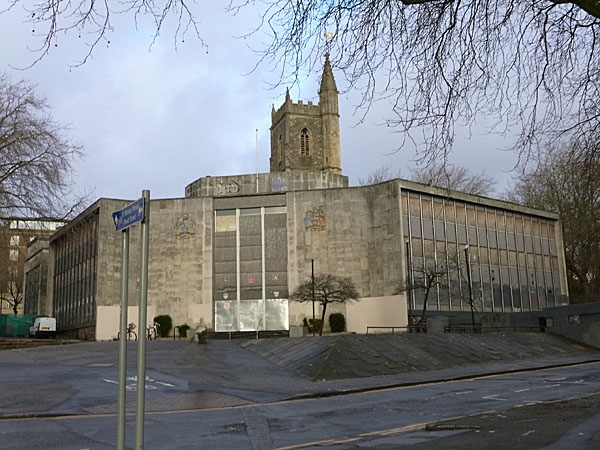The former Norwich Union
Building sits unoccupied and apparently
unloved at the corner of High Street and
Bridge Street in Bristol's city
centre. It is one of a threesome of
buildings that sit at the end of Castle Park
arranged around the ruined tower of the St
Mary-le-Port Church. Built in 1962 it
provided Norwich Union with a new bigger
office in the city. The building that
I photographed in January of 2014 is clearly
a pale shadow of its former self with all
the windows boarded up and graffiti on its
walls.
Below you can see it in better times, first
in the architect's visualization and then
during construction. The images are
shown here with the kind permission of
Anna
Stone, the Aviva Group Archivist.
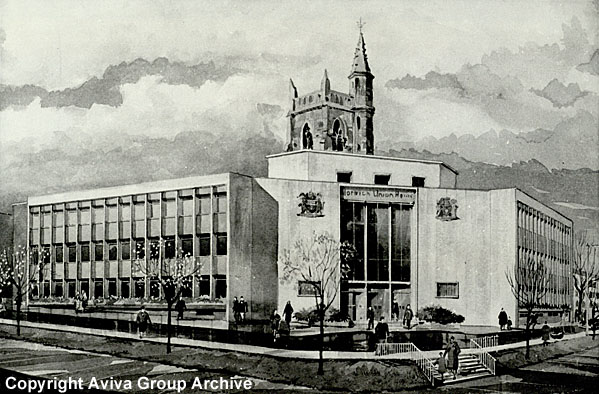
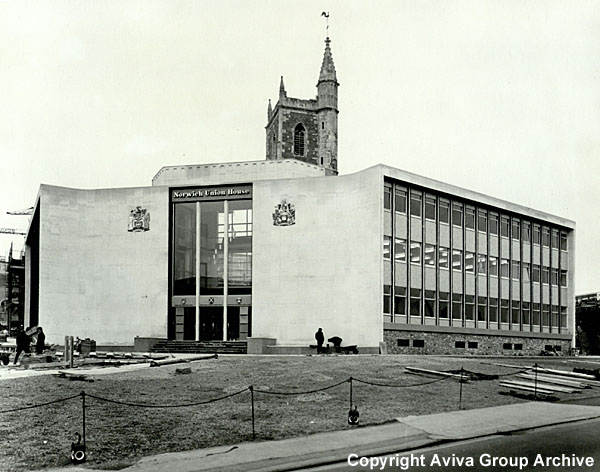
A closer look reveals a
full-height foyer with a sixties-style
chandelier.
Today the building is boarded up awaiting
its fate.
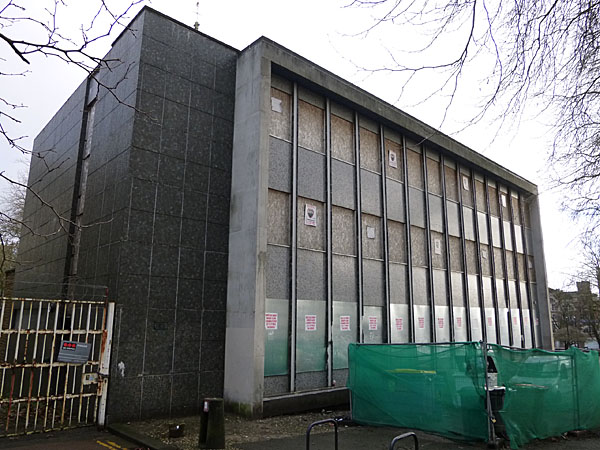
Coats of arms are located on either side of
the entrance.
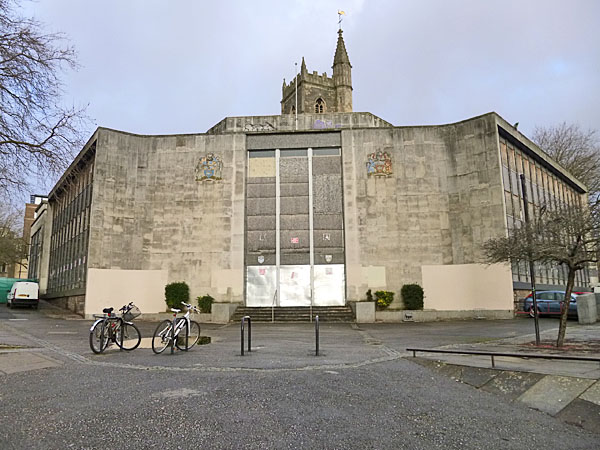
Anna Stone, the
archivist of Aviva Plc, was kind enough to
explain the history behind these coats of
arms. The one to the left of the door
is the arms of the Norwich Union Life
Society incorporating those of the Amicable
Society.
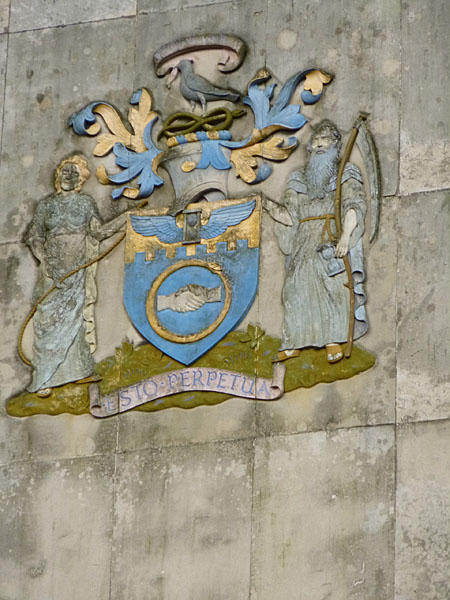
The one to the right of
the door belongs to the Norwich Union fire
society. It was granted in 1947 and
features: Justice (who was traditionally
used in the society’s policy literature);
blue and white wavy lines to represent the
fact that the company operated all over the
world and that the origins of insurance are
from marine insurance; a red sword from the
arms of the City of London; and a castle
from the arms of Norwich. The two supports
are the blue lion from the arms of the
Bignold family (founding family) and the
salamander (the mystical creature which
lives in fire).
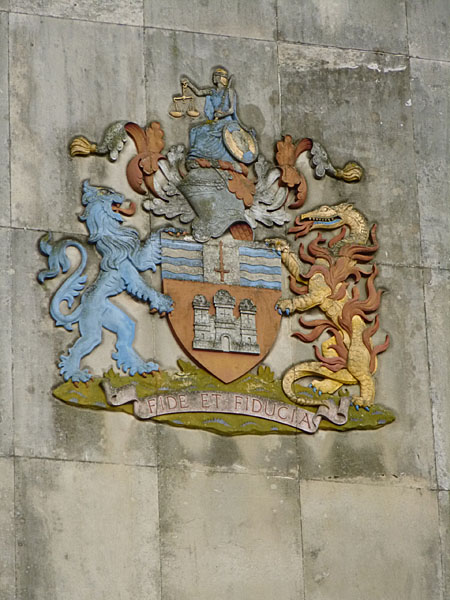
The building along with
the abandoned former Bank of England next
door occupy a site at the end of Castle Park
that has been the subject of contested plans
for redevelopment for a number of
years. The most contentious part of
the plan involves the use of part of the
park itself and as of January 2014 the
process continues to be beset by
disagreements between the city and members
of the public.
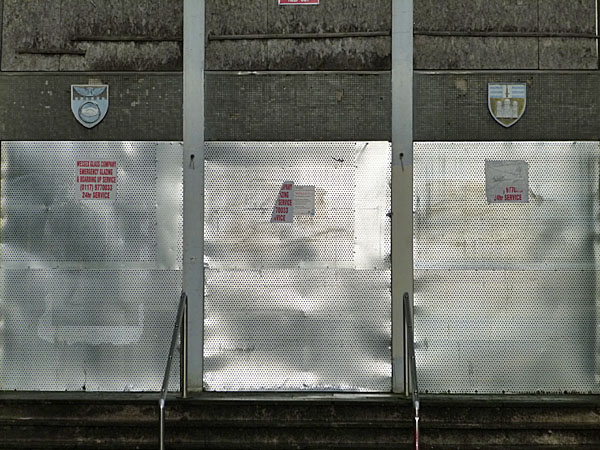 Close
Window
Close
Window

